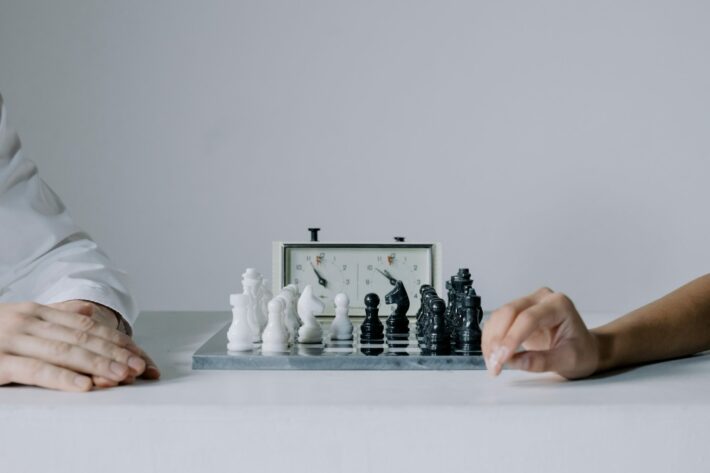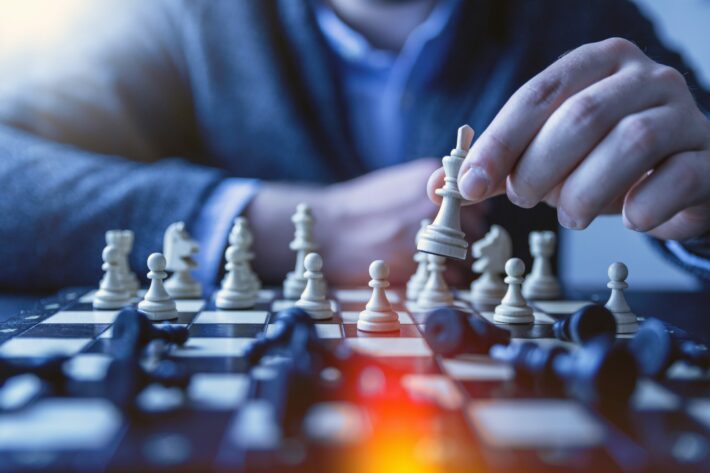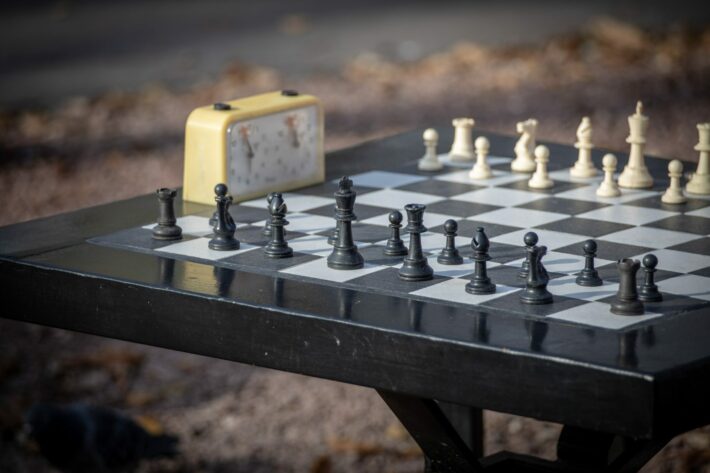When it comes to the world of chess, every move counts. From the strategic opening to the critical endgame, time management is a crucial element that can make or break a player’s success. One essential tool that aids in this aspect is the chess timer.
Here, we will explore the significance of using a timer in competitive play, uncovering its impact on strategic decision-making, time management skills, psychological benefits, concentration and focus, decision-making under pressure, speed and pace, tournament play, positional play dynamics, excitement and suspense, strategies for maximizing its use, calculation, and analysis skills, development of patience, differences between timed and untimed games, creating a level playing field, and overall player growth and improvement.
How does a chess timer impact strategic decision-making during a game?
Strategic decision-making is at the core of chess, and a chess timer plays a vital role in shaping these decisions. With a limited amount of time for each move, players must analyze the position, consider potential moves, and anticipate their opponent’s responses—all within the constraints of the clock.
The timer acts as a constant reminder, urging players to think strategically and make the most informed decisions within the given time frame. It forces players to evaluate the risks and rewards of their moves, promoting a deeper understanding of the game and enhancing strategic thinking abilities.
| Aspect | Value | Explanation |
|---|---|---|
| Strategy | Helps enforce time allocation for moves | Players must make decisions within a set time limit, fostering strategic thinking. |
| Focus | Enhances concentration during the game | The ticking clock prompts players to stay focused and avoid distractions. |
| Pressure | Encourages decision-making under pressure | Time constraints simulate real-life pressure situations, testing players’ abilities. |
| Speed | Adds a sense of urgency to the gameplay | The timer sets the pace of the game, urging players to think and move quickly. |
| Fairness | Ensures equal time allocation for both players | The chess clock divides playing time fairly, eliminating time advantages. |
Is using a chess timer essential for developing time management skills in chess?

Time management is a skill that extends beyond the chessboard, and using a chess timer is a fantastic way to develop this crucial ability. The timer adds an element of urgency to the game, requiring players to allocate their time wisely.
By learning to make efficient decisions within the allotted time, players enhance their time management skills, which can be applied to various aspects of life. The pressure of the ticking clock teaches players to prioritize moves, evaluate options quickly, and use time as a resource—a skill that becomes invaluable not only in chess but also in managing time in daily tasks and responsibilities.
Can using a timer enhance concentration and focus in competitive chess?
The use of a chess timer adds a sense of urgency to the game, demanding players to maintain a high level of concentration and focus throughout. With limited time to make their moves, players are less likely to drift off or lose track of the game.
The ticking clock serves as a constant reminder to stay engaged and attentive, helping players avoid careless mistakes and oversights. Consequently, regular use of a chess timer improves concentration and focus, enabling players to perform at their best during competitive play.
Does the use of a chess timer contribute to improved decision-making under pressure?
In the fast-paced world of competitive chess, decision-making under pressure is a crucial skill. The chess timer acts as a valuable training tool, providing players with the opportunity to hone their decision-making abilities in high-pressure situations.
As the seconds tick away, players must evaluate their options swiftly and confidently. This regular exposure to time constraints improves players’ ability to make calculated decisions under pressure, allowing them to thrive in critical moments during competitive play.
How does the chess timer influence the speed and pace of a game?
The chess timer has a significant impact on the speed and pace of a game. With a finite amount of time for each move, players are compelled to think and act quickly. The timer ensures that players cannot excessively dwell on a single move, thus maintaining a reasonable pace for the game.
This added sense of urgency keeps the game dynamic, preventing it from becoming stagnant or overly drawn out. As a result, the chess timer contributes to a faster, more engaging gameplay experience that keeps players on their toes.
What are the implications of utilizing a chess timer for tournament play?
Tournament play is where the competitive nature of chess truly shines, and the use of a chess timer is fundamental in this setting. Tournaments often have time controls that require players to make a certain number of moves within a given period. The chess timer becomes a crucial element for both players and tournament organizers, ensuring fair play and efficient game progress.
The timer helps maintain consistent game lengths, prevents delays, and enforces equal time allocation for both players. Without a doubt, the use of a chess timer is essential for tournament play, creating a level playing field and setting the stage for intense battles of skill.
How does the chess timer affect the dynamics of positional play in chess?

Positional play is an integral part of chess strategy, and the chess timer can influence its dynamics. With limited time for each move, players may find themselves in situations where they must choose between exploring complex positions or opting for simpler, more solid moves.
The timer forces players to make quick assessments of the position’s complexity and decide the best course of action within the given time frame. This adds an extra layer of strategic thinking to positional play, where players must balance thorough analysis with time efficiency.
Does the chess timer add an element of excitement and suspense to the game?
The chess timer injects an exciting element of suspense into the game. As the clock winds down, the pressure builds, creating a thrilling atmosphere for both players and spectators.
Every move becomes more critical, and the race against time adds a captivating dimension to the game. The timer intensifies the excitement, keeping players engaged and on edge throughout the match. It transforms chess from a slow-paced intellectual pursuit into a high-stakes battle of wits.
What strategies can players employ to maximize their use of the chess timer?
To make the most of the chess timer, players can implement various strategies. Firstly, players should develop a solid opening repertoire to save time during the initial moves. By having a clear plan in mind, players can make their opening moves confidently and efficiently.
Secondly, players can practice time management techniques such as allocating more time for critical positions and less time for simpler decisions. Additionally, players can improve their calculation and analysis skills, enabling them to make quicker, more accurate evaluations of the position.
Lastly, players should prioritize moves that put pressure on their opponents, forcing them to spend more time on their replies. These strategies, when combined with regular timed practice, help players maximize their use of the chess timer and gain a competitive edge.
Can the chess timer be used as a tool for honing calculation and analysis skills?
The chess timer serves as an excellent tool for honing calculation and analysis skills. With limited time, players must sharpen their ability to calculate variations and assess positions quickly.
The timer encourages players to think ahead, anticipate possible moves, and evaluate their consequences efficiently. Regular practice with a chess timer challenges players to improve their analytical abilities, allowing them to become more proficient at assessing complex positions and making accurate calculations within a restricted timeframe.
How does the use of a chess clock impact the development of patience in players?
While chess may be a game of intellect, it also demands patience. The use of a chess clock can significantly impact the development of patience in players. As they navigate the game under time constraints, players learn to resist impulsive moves and hasty decisions.
The timer encourages them to take the necessary time to consider their options, evaluate positions thoroughly, and choose the best course of action. Through this process, players develop the virtue of patience, which extends beyond the chessboard and becomes a valuable trait in various aspects of life.
What are the differences between playing with and without a chess timer?

Playing with a chess timer introduces several key differences compared to playing without one. Firstly, time becomes a critical factor in decision-making, adding an extra layer of complexity and pressure to the game. Players must now allocate their time wisely, ensuring they have sufficient thinking time for critical moments.
Secondly, the pace of the game increases significantly, as players are compelled to think and act quickly within the time constraints. Additionally, the presence of a chess timer fosters a sense of competitiveness and urgency, enhancing the overall experience of the game.
Does the chess timer create a level playing field in competitive chess?
Indeed, the chess timer creates a level playing field in competitive chess. By dividing the playing time equally between players, the timer ensures fair play.
It eliminates the possibility of one player having a significant time advantage over the other, ensuring that victory is achieved through skill and strategic thinking rather than an unfair time advantage. In this way, the chess timer promotes fairness and equality, allowing players to compete on an even footing.
How can the use of a chess timer contribute to players’ overall growth and improvement?
The use of a chess timer contributes significantly to players’ overall growth and improvement. By practicing and playing with a chess timer, players develop essential skills such as strategic thinking, time management, concentration, decision-making under pressure, and patience.
These skills extend beyond the chessboard, benefiting players in various aspects of their lives. Moreover, the competitive nature of timed games pushes players to continually improve and refine their abilities. Through regular timed practice, players can measure their progress, identify areas for improvement, and strive for mastery of the game.
Final Reflections
Mastering the chess clock is a vital aspect of competitive play. The significance of using a timer in chess cannot be understated—it impacts strategic decision-making, develops time management skills, provides psychological benefits, enhances concentration and focus, improves decision-making under pressure, and influences the speed and pace of the game.
Moreover, it has implications for tournament play, affects positional play dynamics, adds excitement and suspense, offers strategies for maximizing its use, hones calculation, and analysis skills, develops patience, highlights differences between timed and untimed games, creates a level playing field, and contributes to overall player growth and improvement. So, embrace the chess timer, embrace the thrill of the ticking clock, and embark on a journey to become a master of timed play.




